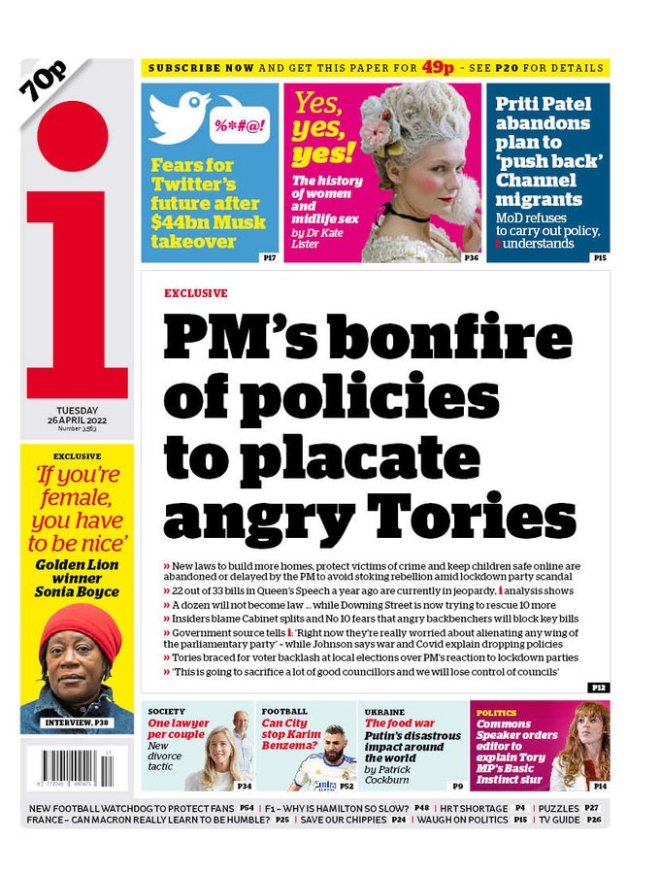17th May 2022
As any good regulatory lawyer will tell you, ‘compliance’ is better than contravention or challenge.
The question is what can constitute compliance.
From time to time a regulatory lawyer will get a new or inexperienced regulated client who want to challenge or contravene a regulatory rule or policy.
‘Let’s go to court’,’ the novice will say, or ‘let’s tell them that we will see them in court’.
The regulatory lawyer will shake their wise head and say: ‘well, if you do this instead, then you will be complying, and then all the bother will go away’.
*
Compliance is usually a better overall legal strategy than confrontation.
And with that view in mind, let us now look at the statement by the Foreign Secretary today to the House of Commons about the Northern Irish Protocol.
Instead of the statement once (notoriously) made by a cabinet minister that the United Kingdom would only break international law “in a very specific and limited way”, the Foreign Secretary said that the government would comply with international law in its new legislation:
“That is why I am announcing our intention to introduce legislation in the coming weeks to make changes to the Protocol.
“Our preference remains a negotiated solution with the EU.
“In parallel with the legislation being introduced, we remain open to further talks if we can achieve the same outcome through negotiated settlement. […]
“The Government is clear that proceeding with the Bill is consistent with our obligations in international law – and in support of our prior obligations in the Belfast Good Friday Agreement.”
In other words, the government is to ‘comply’ with international law – though no doubt in a very specific and limited way.
*
So much for rhetoric – on information currently available, it seems the government is threatening what it has threatened before.
The significant difference is that the government is now to threaten this while maintaining it is complying with international law rather than candidly admitting that it is seeking to break it.
It seems that the basis for this intellectual exercise in gymnastics is that the Good Friday Agreement takes priority over the protocol.
That this is the tactic is supported by the references to the Good Friday Agreement at the beginning of the statement and from statements from government supporters:
*
As one Northern Irish writer put the notion of such priority in a fantasy context, there can sometimes be “deeper magic”.
What the government appears to be developing is a contention that any unilateral amendment of the Norther Irish Protocol cannot really be a breach of international law if that amendment is by reason of the Good Friday Agreement.
Of course: this is all sophistry and illusion.
The policy substance has not changed, and the proposed breach has not changed, all that has changed is that the proposal will not now be described as breaking international law.
*
Yet such a rhetorical shift is possibly significant.
For it may signify that although the United Kingdom government has no fresh ideas about how to resolve the issue with the Northern Ireland Protocol, ministers may now realise that the rhetoric of challenges and outlawry is not necessarily helpful.
And, if this is the case, this could become a useful habit – for the government may find other things that can be brought under the label of ‘compliance’ that may allow it to shift its position in substance.
Smudgery and fudgery, perhaps.
And somewhere in Whitehall, a foreign office lawyer nods their head wisely.
It is all about what ‘compliance’ means, you see.
**
Thank you for reading – and please do support this blog, so that it can carry on for you and others.
These free-to-read law and policy posts every week-day do take time and opportunity cost to put together, as do the comments to pre-moderate.
So for more posts like this – both for the benefit of you and for the benefit of others – please do support through the Paypal box above, or become a Patreon subscriber.
You can also become an email subscriber.
***
Comments Policy
This blog enjoys a high standard of comments, many of which are better and more interesting than the posts.
Comments are welcome, but they are pre-moderated and comments will not be published if irksome.
For more on this blog’s Comments Policy see this page.




